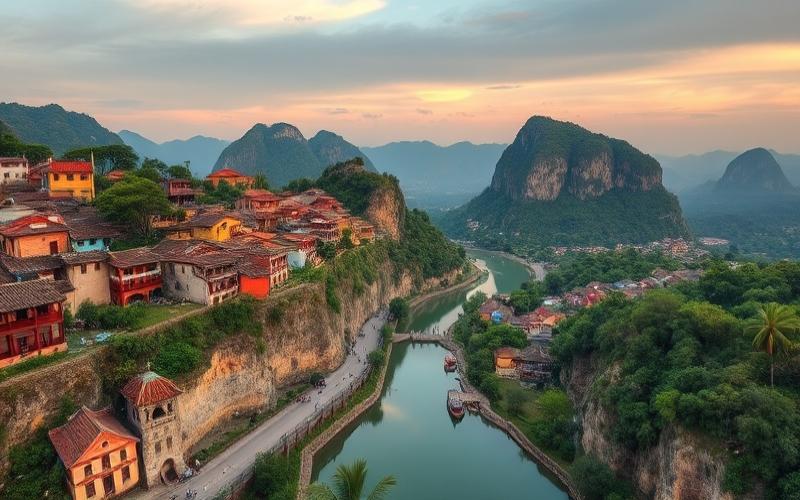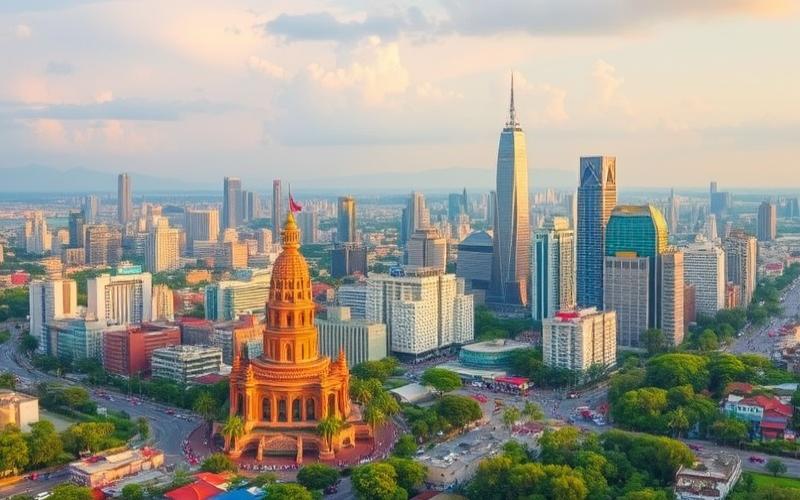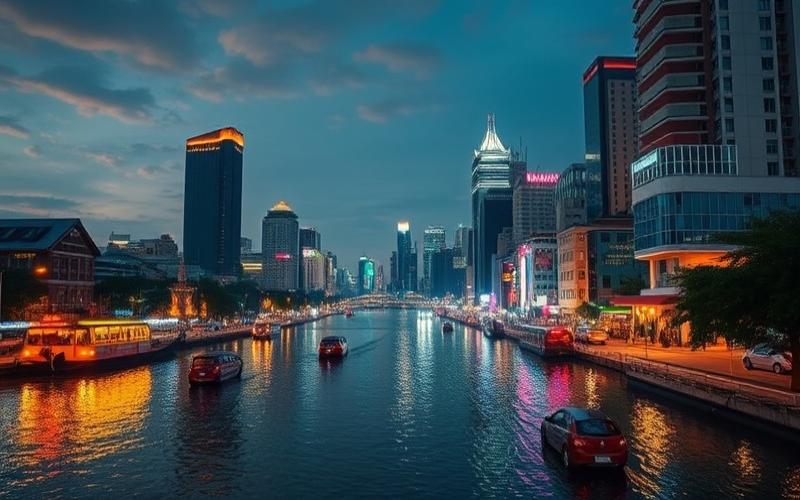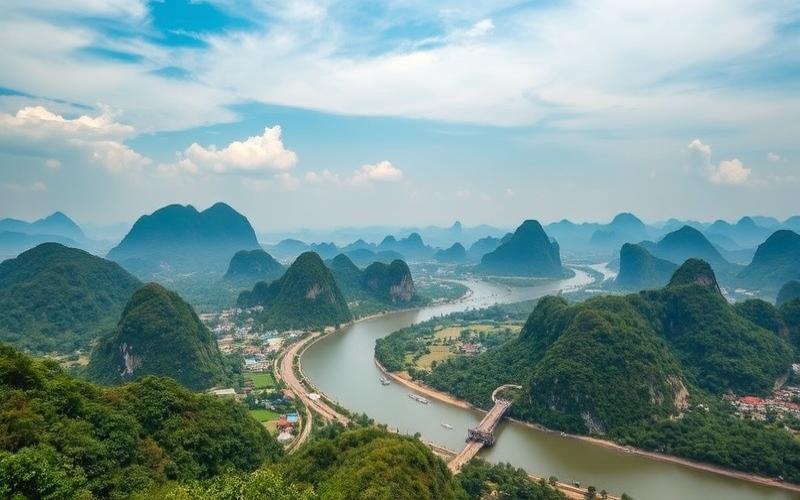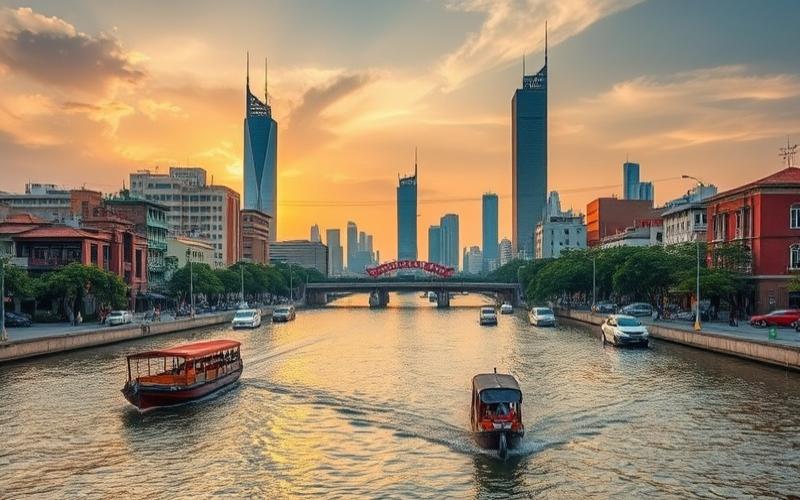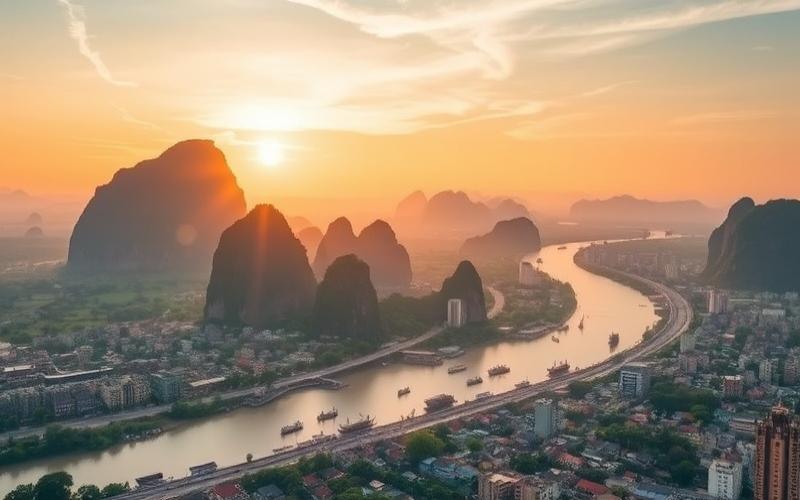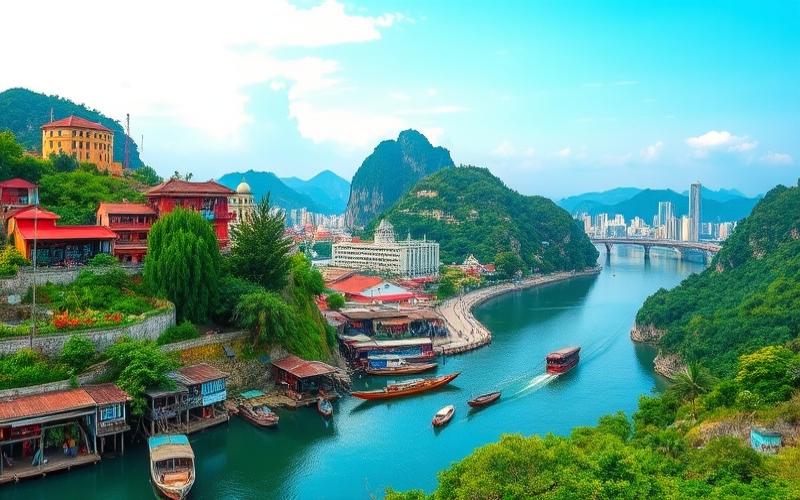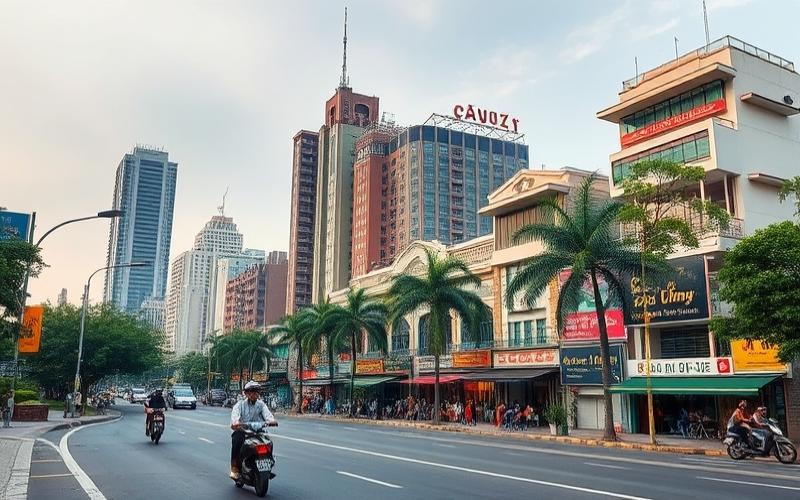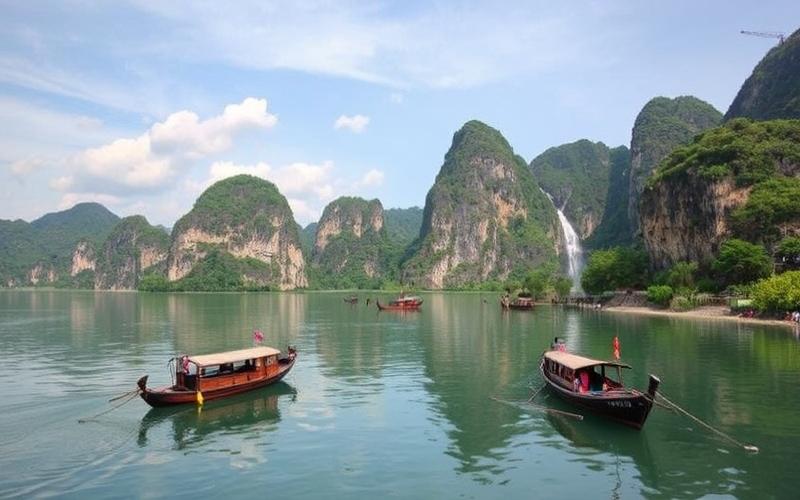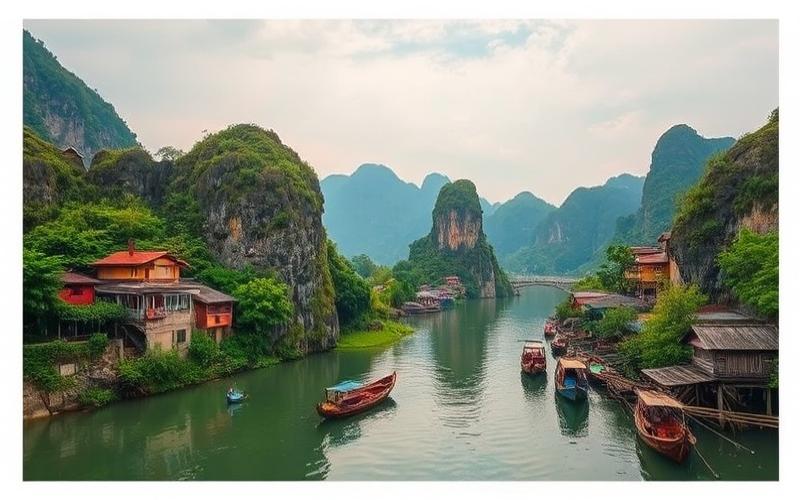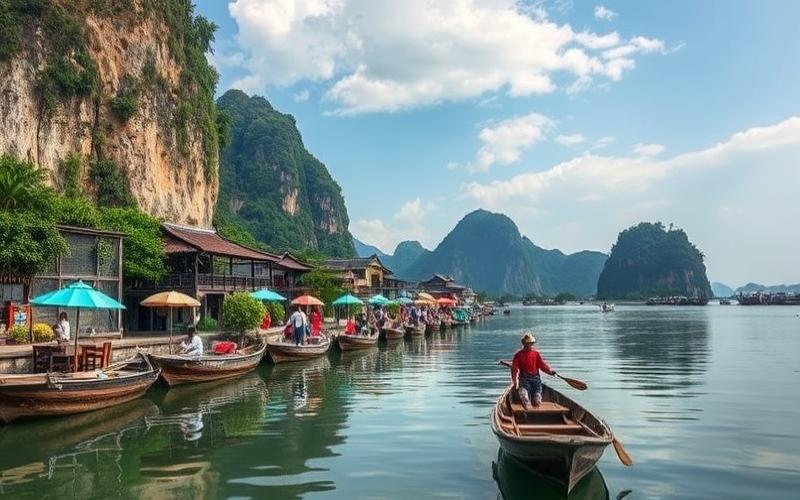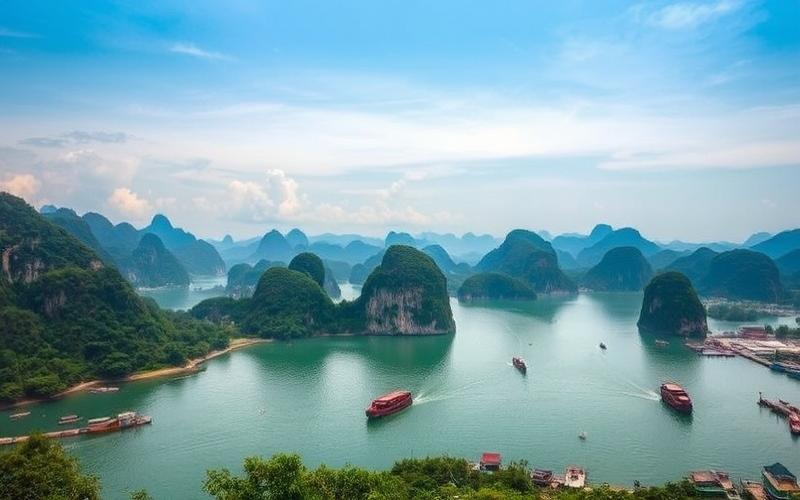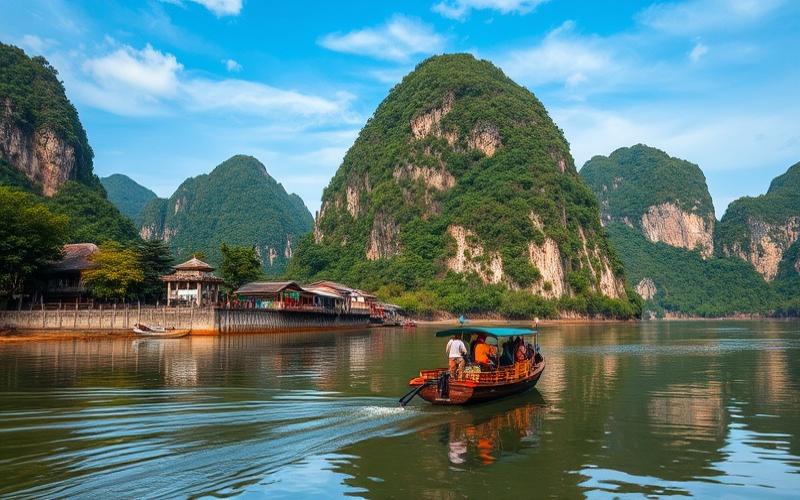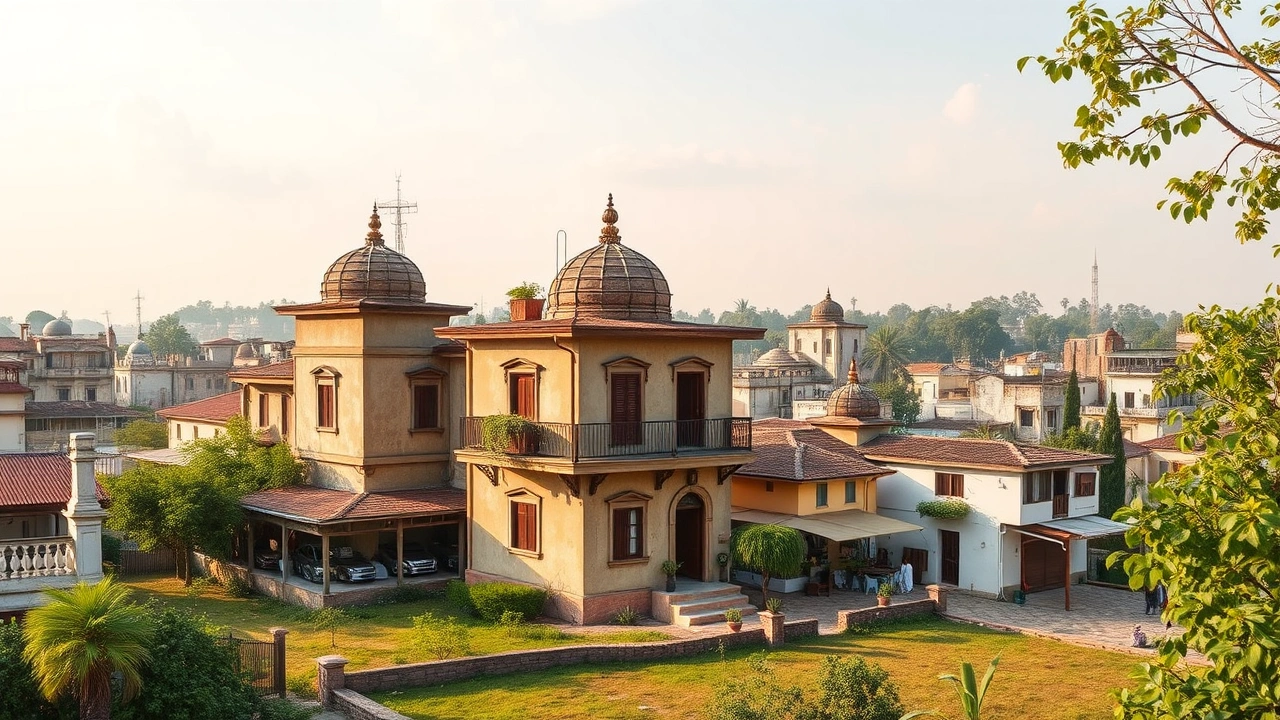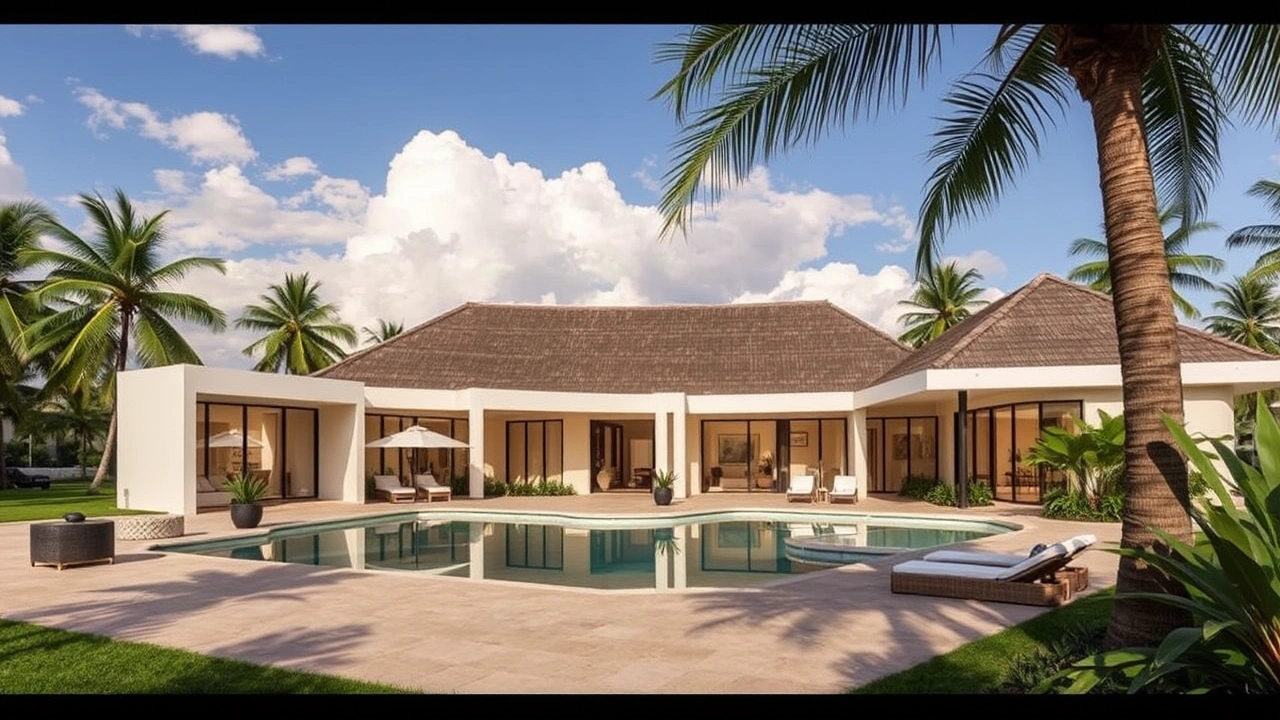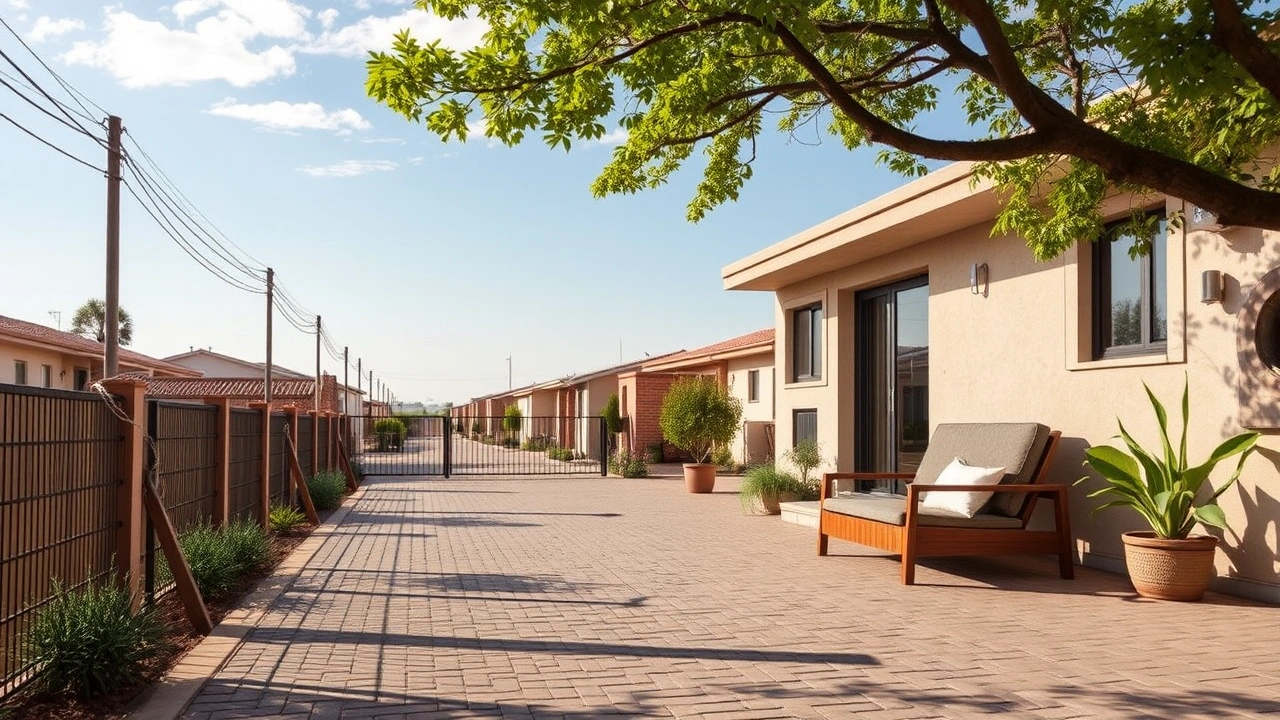
 Published on and written by Cyril Jarnias
Published on and written by Cyril Jarnias
In an ever-evolving economic world, obtaining real estate financing in Vietnam presents an intriguing and rewarding challenge for potential investors. This dynamic, rapidly growing market offers unique opportunities but requires a thorough understanding of local regulations, loan conditions, and available financial options.
Financial institutions in Vietnam offer various products tailored to the needs of domestic and international buyers, but accessing these resources often requires a well-thought-out strategy and proper preparation.
This article will guide you through the key steps to effectively negotiate your financing, while highlighting essential tips and advice to facilitate your property acquisition journey in this vibrant country.
Obtaining Real Estate Financing in Vietnam: A Guide for Foreigners
Key steps to obtain real estate financing in Vietnam as a foreigner:
- Eligibility Verification
- Hold a valid visa (tourist, work, or residence).
- Ensure the desired property is in an approved project accessible to foreigners (new apartment or single house in certain projects).
- Verify that the property is not located in a restricted area (near military or strategic sites).
- Opening a Vietnamese Bank Account
- Provide passport, valid visa, and proof of temporary residence.
- This account facilitates managing financial flows related to the purchase and loan repayment.
- Preparation of Required Documents for Loan Application
- Passport with valid visa.
- Proof of local address.
- Proof of stable income (pay stubs, employer certificates, professional contracts).
- Recent bank statements.
- Preliminary purchase agreement/sales contract for the property.
- Verification of Bank Conditions Specific to Foreigners
Criterion Vietnamese Residents Foreigners Interest Rate Standard local market Often higher Maximum Loan Term Up to 25 years Generally shorter Down Payment 20-30% Can reach 40-50% Required Guarantees More flexible Stricter - Submission of Application to Selected Banks
- Bank Evaluation and Financing Response
- Signing the Loan Contract and Finalization with Notary/Competent Authority
Tips for Negotiating Interest Rates:
- Compare offers from multiple Vietnamese and international banks present locally.
- Prepare a strong application proving your financial stability (regular income internationally or in Vietnam).
- Negotiate not only the nominal rate but also additional fees: mandatory borrower insurance, early repayment penalties…
- Consider additional guarantees: significant deposit or mortgage on another property.
Important Legal Restrictions for Foreigners:
- Cannot directly purchase vacant land; only built structures can be owned by foreigners.
- Strict quantitative limits: maximum 30% of apartments in a given residential building; up to 250 single houses per administrative ward; no more than 10% in certain specific land projects.
| Property Type | Accessible to Foreigners? | Quantitative Restrictions |
|---|---|---|
| New apartment/approved project | Yes | Max 30% per building |
| Single house in project | Yes | Max 250 units/ward |
| Vacant land | No | – |
Maximum Duration: limited right to 50 years renewable under conditions.
Prohibited Areas: properties located near strategic/military zones.
Suggestions for Finding Competent Financial Advisors:
- Prefer specialized firms in international investment with proven experience with expatriate/French-speaking/Vietnamese clients.
- Consult the embassy/international chamber of commerce which often maintain an updated list of licensed local experts speaking English/French/your native language.
- Systematically request:
- Verifiable client references
- Transparency on fees
- A personalized comparative analysis based on your profile
To secure each step, it is highly recommended to be accompanied from the start by:
- A local lawyer specialized in international real estate law
- An independent financial advisor experienced in Vietnam
- A licensed real estate agent perfectly familiar with regulations applicable to non-residents
Good to Know:
To obtain real estate financing in Vietnam, foreigners must first open a Vietnamese bank account, an essential step to facilitate financial transactions. Verifying eligibility conditions imposed by local banks is crucial, as these can vary and include special criteria for non-residents. Required documentation generally includes identification documents, proof of income, and sometimes a local guarantee. It’s advisable to negotiate interest rates, which can be significantly different from those offered to Vietnamese residents. Foreigners may also face legal restrictions, such as limitations on access to certain property types. To overcome these challenges and optimize financing, consulting a financial advisor specialized in real estate for foreigners in Vietnam can be wise. These experts can offer tailored support and navigate the complexities of the Vietnamese market.
Essential Documents for Your Real Estate Financing Application
| Key Document | Importance | Reason for Request |
|---|---|---|
| Reservation Contract (deposit/down payment) | Formalizes agreement between buyer and seller/developer to reserve the property. | Allows the bank to verify that the transaction is underway and the property is identified. |
| Proof of Identity (passport, ID card) | Confirms borrower’s identity, mandatory in all banking or notarial procedures. | Serves to prevent fraud and comply with KYC (“Know Your Customer”) regulatory obligations. |
| Income Proof | Pay stubs, employer certificates or tax returns demonstrate applicant’s financial capacity. | Enables assessment of solvency and thus risk for the lending institution; basis for calculating financeable amount. |
| Recent Bank Statements | Attest to actual financial flows over several months; validate information provided on income/financial sources. | Verify actual existence of declared financial resources; detect potential anomalies. |
| Personal Financing Plan | Presents how the real estate project will be financed: personal contribution, requested loan, other mobilized resources… | Allows lender to assess overall project viability and anticipate any unsustainable remaining balance. |
| Proof of Residence | Recent utility bill (electricity/water), rental lease or official certificate justifying legal residence in Vietnam/at given address | Mandatory for certain profiles (expatriates/non-residents), useful for determining your tax status/location |
| Specific Expatriate Documents | Valid visa/work permit/temporary permit/TRC (“Temporary Residence Card”) depending on profile |
Other Frequently Requested Supporting Documents
- Official “pink book” certificate after acquisition: definitively proves your real right to the property.
- Kbis extract if purchasing through a company.
- Prior written agreement in case of joint purchase.
Synthetic Explanation by Document:
– Reservation Contract/Deposit: essential as it legally solidifies your position with the seller/developer — without this signed document accompanied by the initial payment required by local practice (~100 million VND), impossible to proceed with bank application preparation.
– Identity Documents: they are indispensable so each party is properly identified during different administrative steps; they also condition any subsequent bank opening/management.
– Financial/Income Proof + Bank Statements: their completeness reassures banks about your future repayment capacity; they must be clear, authenticated if necessary, translated into Vietnamese or English according to internal requirements.
– Personal Financial Plan: central tool for arguing with lenders – demonstrates serious preparation and realistic anticipation; absence = application considered incomplete/inadmissible.
– Residence Proof/Specific Expatriate Documentation: essential especially in a context where some institutions don’t automatically grant their support to non-residents without formal proof.
Practical Tips
- Prepare each document in duplicate paper copies + high-resolution scanned digital version.
- Have all foreign documents translated by a sworn translator recognized in Vietnam (French/Vietnamese/English).
- Anticipate additional requests: explanatory letter about unusual banking movements, tax supplement if complex status/multiple nationality…
- Keep all proofs related to significant incoming flows (international transfer…) with associated legal justification.
Important Tip
To speed up your procedures: prepare a complete file now even before it’s officially requested by a bank/potential lender — this avoids any delays during frequent administrative back-and-forth with some local institutions.
For Expatriates
Systematically verify special conditions according to nationality/immigration status with multiple banks as criteria regularly evolve – what’s accepted at bank A may be refused at bank B even with equivalent application.
- Original + certified true copy when possible
- Officially validated local translation
- Digitized file ready for quick transmission
Above summary table usable as personal checklist before official submission at agency or secure digital transmission
Good to Know:
When preparing your real estate financing application in Vietnam, keep essential documents readily available such as the property reservation contract, which demonstrates your formal interest in the purchase, and identity proofs like your passport or ID card, indispensable for verifying your status. Income proofs, such as pay stubs or tax returns, are crucial to prove your loan repayment capacity, while recent bank statements help illustrate your financial health. A well-detailed personal financing plan can strengthen your application by showing you master your borrowing capabilities. Don’t forget to provide proof of residence in Vietnam, necessary especially for expatriates, plus any additional documents required by the lender. For effective preparation, organize your documents chronologically and ensure they’re up-to-date to quickly respond to any additional bank requests. Digitizing these documents facilitates quick exchanges and avoids administrative delays.
Essential Conditions for Accessing a Real Estate Loan in Vietnam
General Eligibility Conditions for Real Estate Loan Approval in Vietnam
Vietnamese banks apply strict criteria for granting real estate loans, whether to residents or foreigners. Here are the main conditions to meet:
- Minimum Applicant Age: generally 18 years.
- Maximum Age at Loan End: often set between 60 and 65 years depending on the institution.
- Stable and Sufficient Income: applicant must justify regular income (pay stubs, employment contracts, tax documents). Banks generally require that monthly repayment not exceed 50% of net income.
- Positive Credit History: absence of serious banking incidents. History is checked with local and sometimes international credit bureaus.
Specific Requirements for Foreigners:
- Legal status in Vietnam (valid visa, temporary or permanent residence permit).
- In some cases, being married to a Vietnamese citizen.
Role of Real Estate Guarantees and Borrower Insurance
| Element | Role |
|---|---|
| Mortgage Guarantee | The acquired property generally serves as main guarantee. Its value is assessed by the bank before loan disbursement. |
| Borrower Insurance | Mandatory in most cases: covers death/disability so debt is repaid in case of major event. |
Additional Criteria Considered by Vietnamese Banks
- Proof of Residence
- Proof of local address (rental lease or temporary/permanent certificate).
- For foreigners: valid visa/official authorization.
- Required Documents
- Identity document (passport/national card)
- Marriage certificate if applicable
- Official income proofs
- Preliminary contract or purchase promise for the property
- Documents related to the property (land title/certificate)
- Recent bank statements
Examples of Additional Conditions Imposed by Certain Financial Institutions
Non-exhaustive list:
- Minimum personal contribution required (often between 20% and 30% of price).
- Limitation on total borrowed amount based on residential status.
- Additional requirement for life or multi-risk home insurance.
Some banks don’t accept all visa types; long-stay visa or TRC (“Temporary Residence Card”) may be required.
For some real estate projects, geographical restrictions: acquisition prohibited in certain protected areas.
Enhanced verification if buyer is professional investor vs individual.
Good to Know:
To obtain a real estate loan in Vietnam, it’s generally required to be at least 18 years old, demonstrate stable income often exceeding 10 million VND monthly, and have a good credit history. Vietnamese banks also examine criteria such as proof of residence and may request documents like employment contract, bank statements, and salary proofs. Generally, financial institutions require real estate collateral and borrower insurance to cover potential repayment defaults. Some banks also impose a minimum initial contribution that can vary between 20% and 30% of the property price. For example, some institutions may require a cosigner with stable financial situation to strengthen loan guarantee.
Disclaimer: The information provided on this website is for informational purposes only and does not constitute financial, legal, or professional advice. We encourage you to consult qualified experts before making any investment, real estate, or expatriation decisions. Although we strive to maintain up-to-date and accurate information, we do not guarantee the completeness, accuracy, or timeliness of the proposed content. As investment and expatriation involve risks, we disclaim any liability for potential losses or damages arising from the use of this site. Your use of this site confirms your acceptance of these terms and your understanding of the associated risks.










